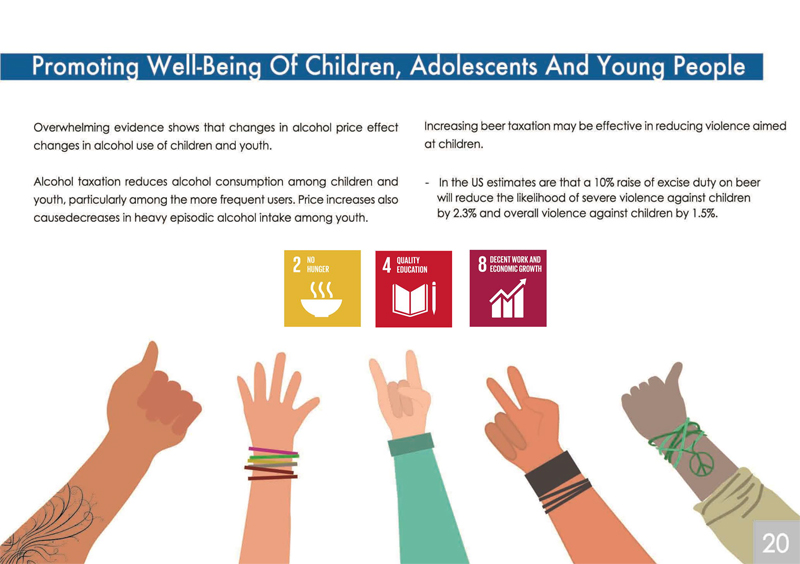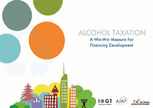New IOGT publication on alcohol taxation:
A Win-Win Measure for Financing Development
Alcohol taxation is an evidence-based, useful, impactful tool to generate funding for sustainable development. It creates a win-win situation for developing and developed countries alike. This is the key message in a new publication on alcohol taxation published by IOGT International.
With reference to existing evidence as well as examples from selected countries the new IOGT publication explains how taxation of alcoholic beverages can give double effect. It can prevent and reduce disease and disability caused by alcohol use, and it can produce revenues for financing of health promotion as well as of sustainable development.
The IOGT publication starts by presenting some basic facts on alcohol as risk factor for disease and disability, followed by some examples of countries which have used alcohol taxation and also earmarking of tax revenues for public health promotion and for alcohol prevention more specifically.
Furthermore, reference is made to key international institutions and their recommendation of alcohol taxation as one of the “nest buys” in alcohol policy; the WHO Global Strategy to Reduce the Harmful Use of Alcohol, The World Economic Forum, OEDC and the World Bank, among others.
The booklet can be viewed and downloaded from the IOGT International web site here.

RELATED ARTICLES
- New report highlights benefits of policy measures to prevent harmful alcohol consumption
- Alcohol use - a barrier to health and to the achievement of the SDGs
- Government investments in alcohol industry up against the wall
- Abstracts for GAPC 2020 – deadline 29 July 2019
- A regional African alcohol coordination mechanism is needed
- New book reveals a series of unethical business practices by Heineken in Africa
- Next GAPC to be held in Dublin in March 2020
- SAFER – a new WHO initiative to boost national alcohol policy processes
- Trouble Brewing
- WHO Launches Global status report on alcohol and health 2018

